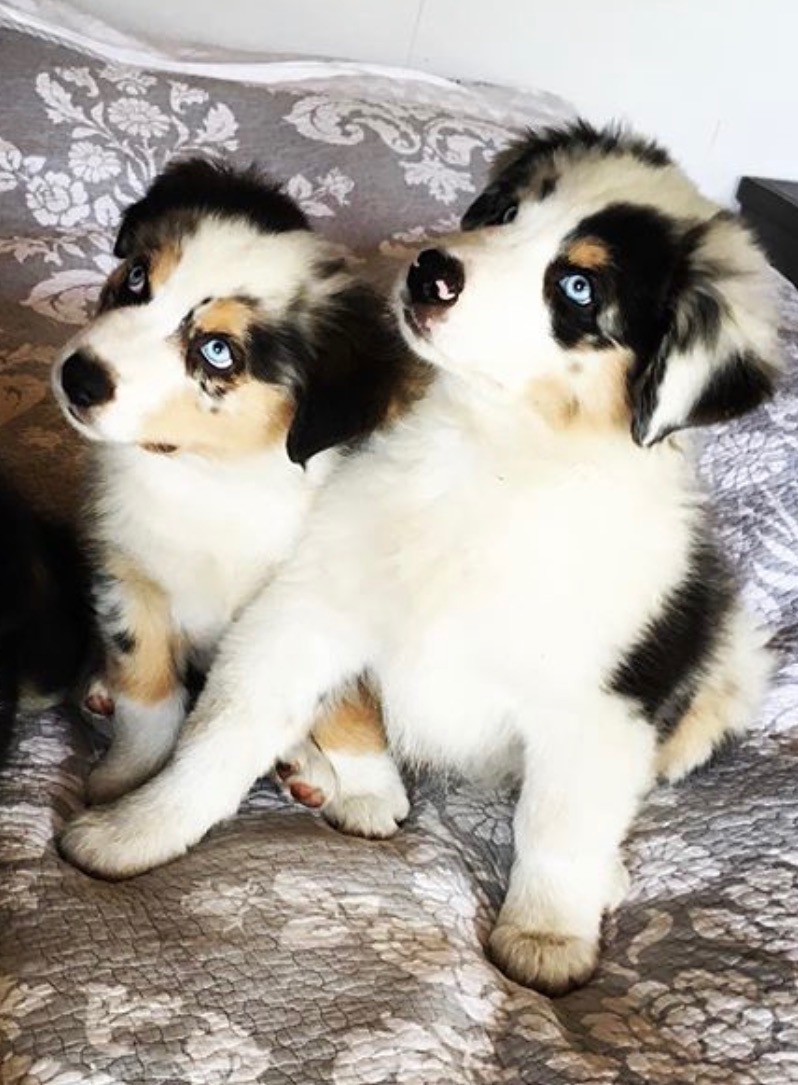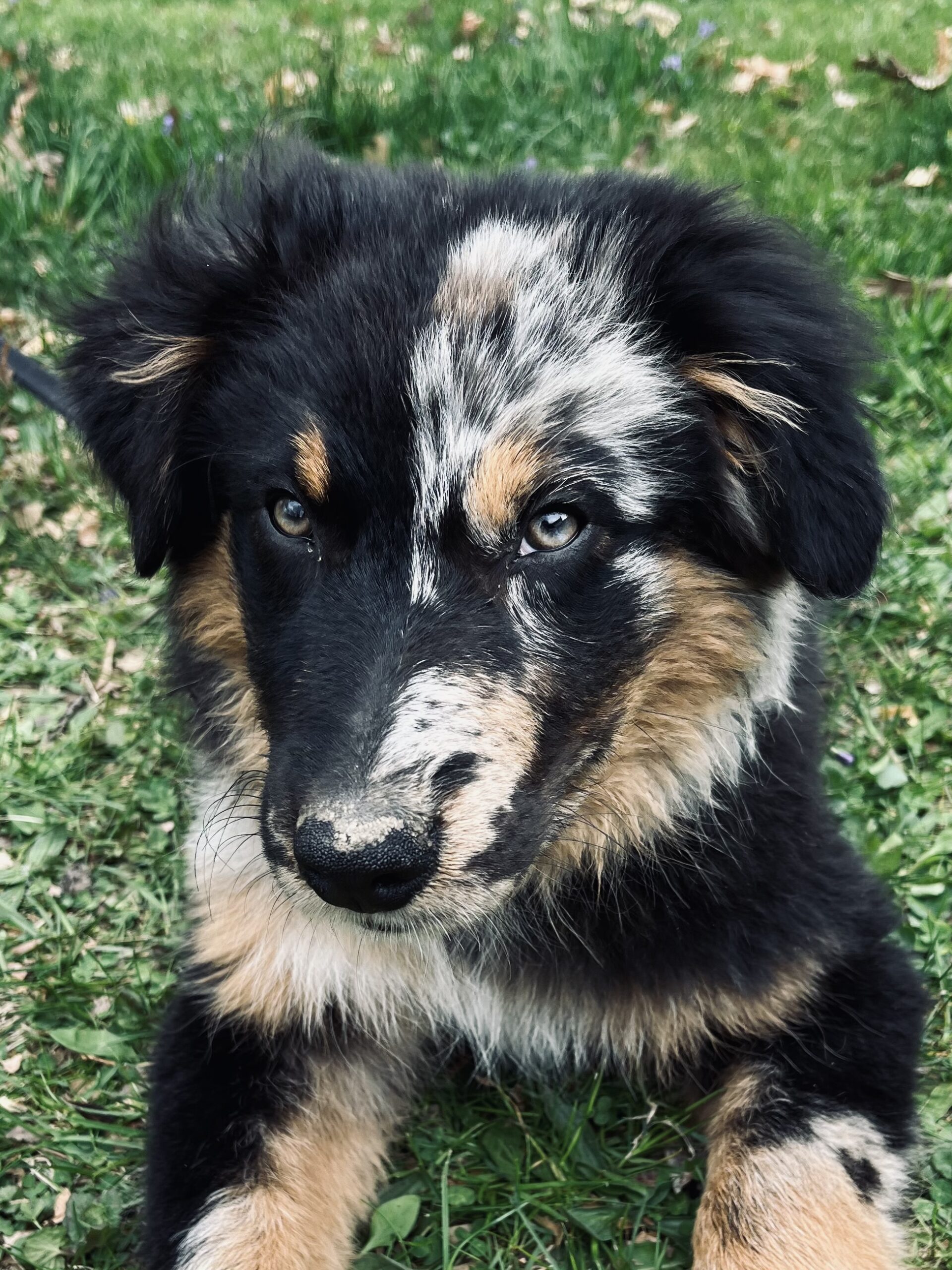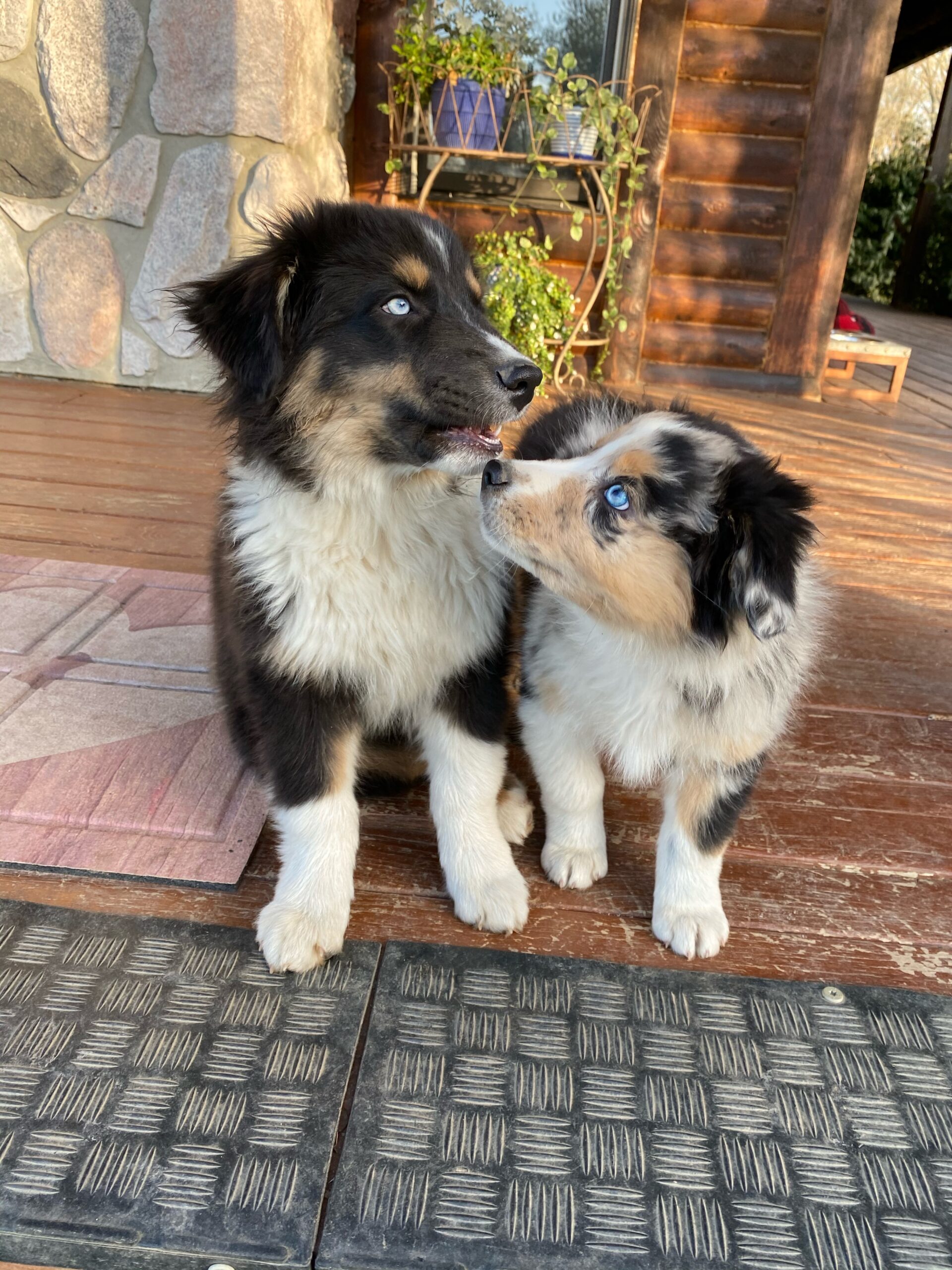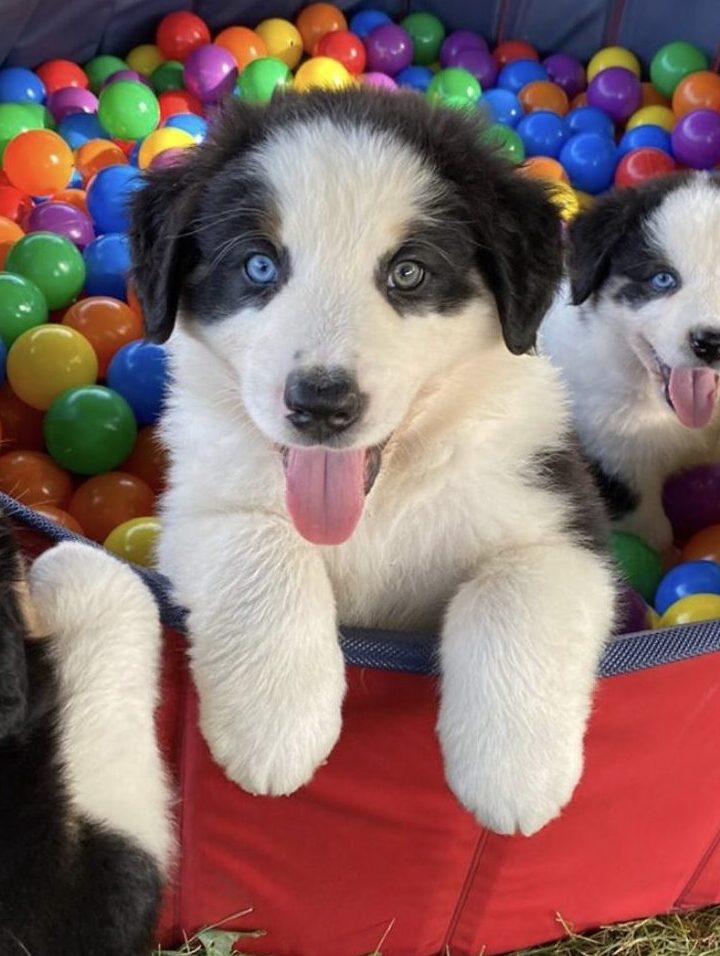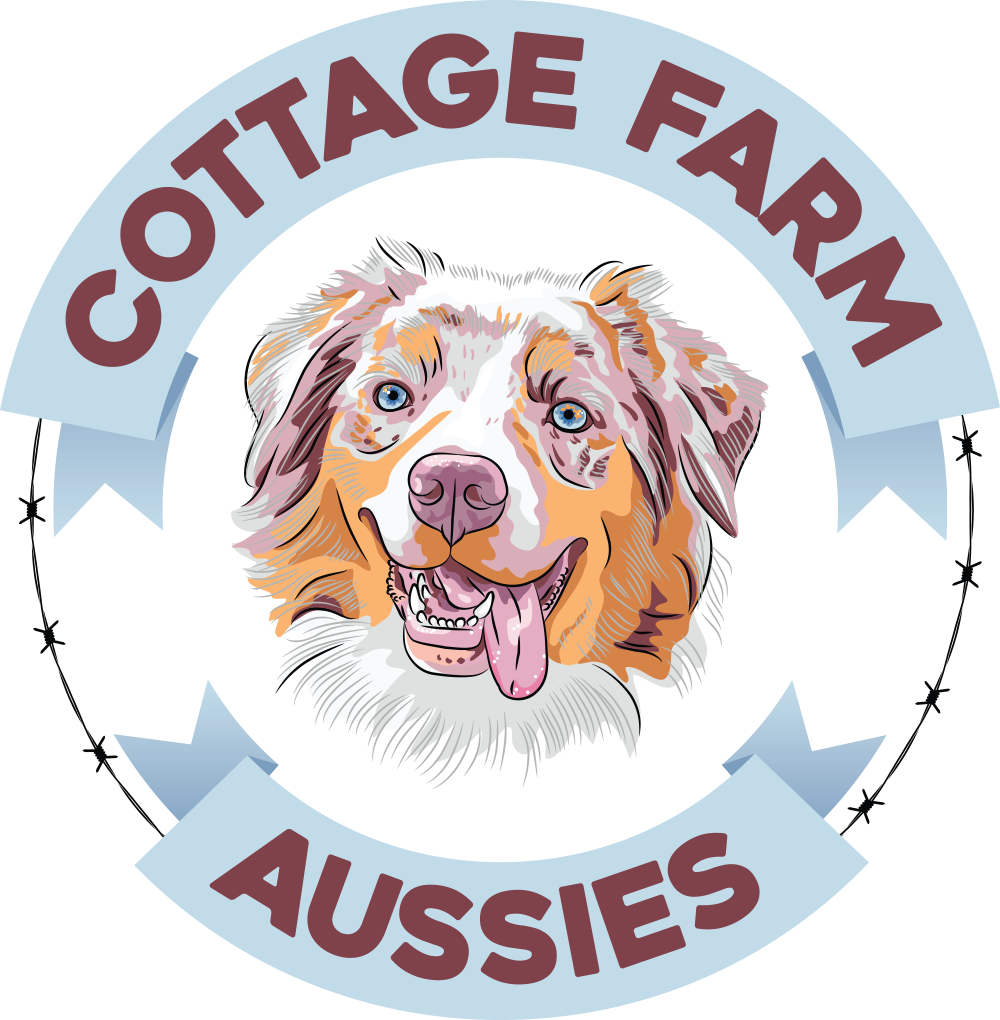Welcome to Cottage Farm Aussies!
How we Raise our Australian Shepherd Puppies
Cottage Farm Aussies isn't your average puppy breeder. All of our dogs are lovingly raised in our homes. Prepping our puppies for their forever homes is our top priority! So, the care we take in breeding to create the best puppies is matched by the thorough socialization we give them throughout the formative first eight weeks of life. Our number one goal is to better the breed, especially in the overall health of our dogs. That is why all our dogs are genetically tested for the top 13 diseases Aussies are prone to carry, ensuring all our puppies will have a happy and healthy future.
We strive to produce outstanding, healthy Aussie puppies that will be a blessing to your family for years to come.
3 Days to 2 Weeks Old
Puppies find comfort in an in-home puppy nursery with constant supervision and care. At this stage they are growing quickly and bonding with each other and their mom.
Tactile Stimulation – Holding the puppy in one hand, and gently stimulate (tickle) the puppy between the toes on any one foot using your thumb.
Head Held Erect – Using both hands, the puppy is held perpendicular to the ground, (straight up), so that its head is directly above its tail.
Head Pointed Down – Holding the puppy firmly with both hands the head is reversed and is pointed downward so that it is pointing towards the ground.
Supine Position – Hold the puppy so that its back is resting in the palm of both hands with its face facing the ceiling.
Thermal Stimulation – Place the puppy on the ice pack, feet down.
Towards the end of two weeks their eyes are opening, and they are learning to walk.

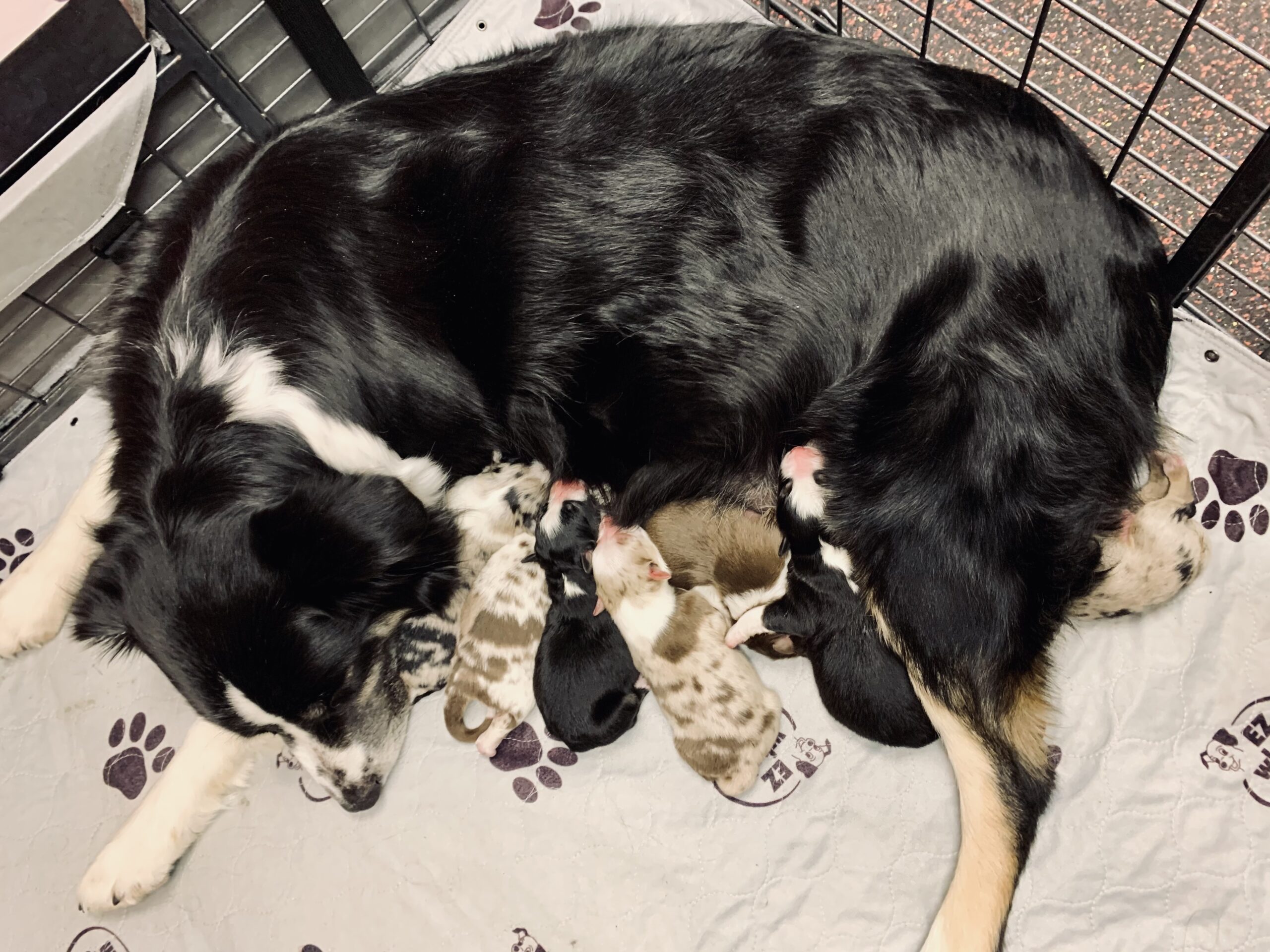
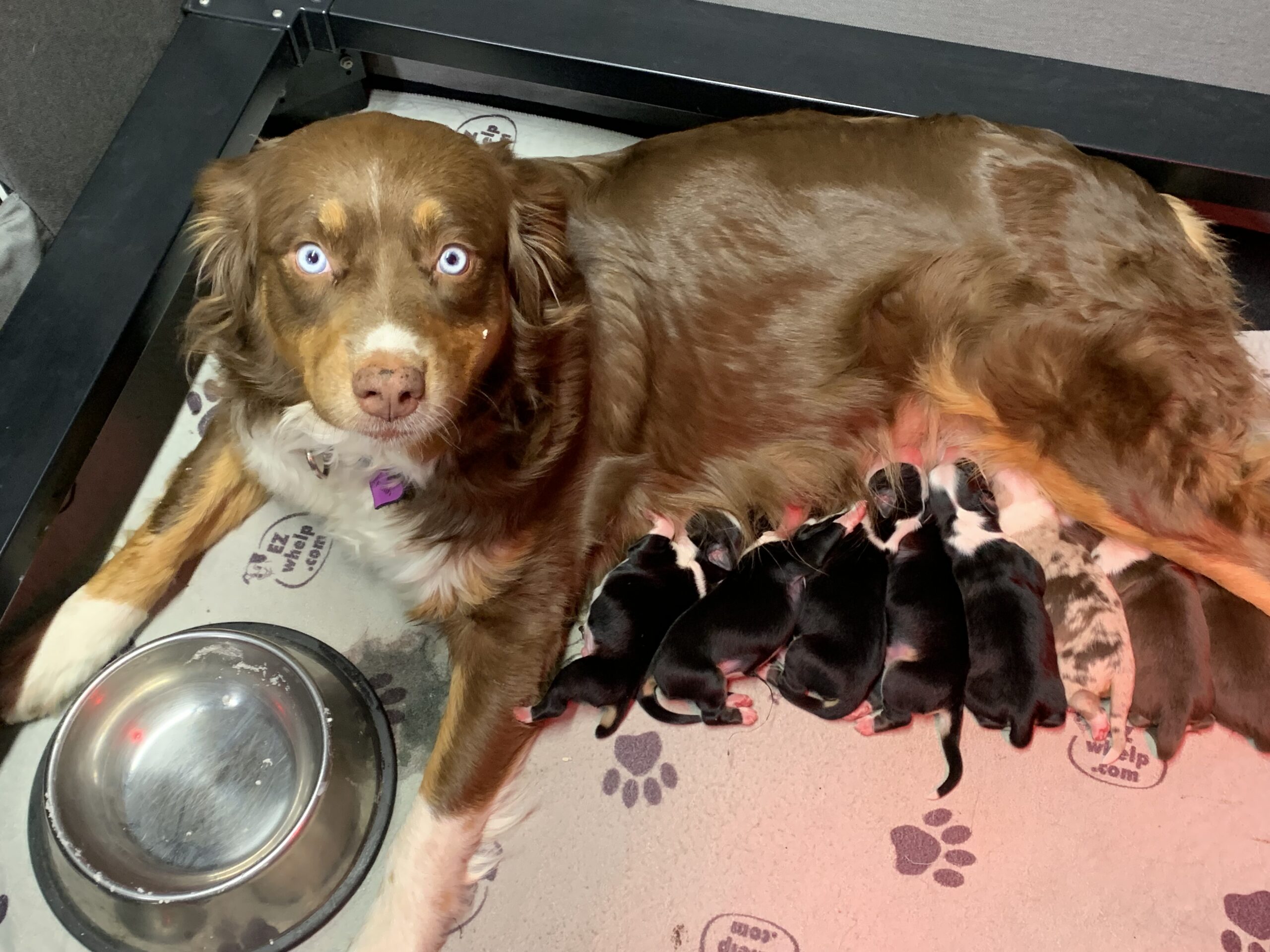
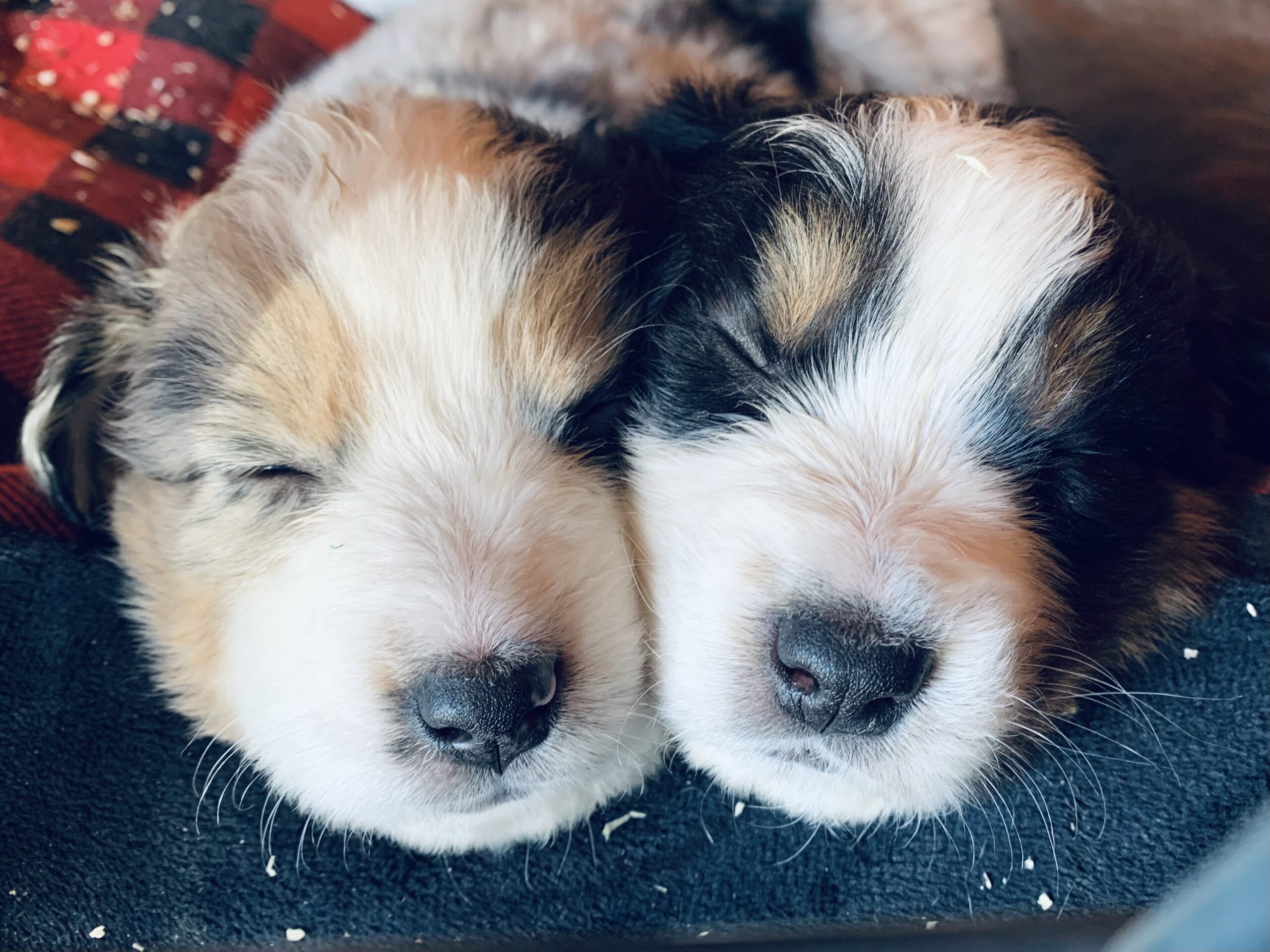
2 to 4 Weeks Old
Eyes and ears are now open so socialization starts.
They begin asking for attention and find their voice.
We keep the nails short and introduce a new toy each day.
This is also the stage where we start teaching recovery from fear - bouncing back. We make loud noises, vacuum, drop pans, etc. They recover almost immediately and show very little fear.
Lastly, we touch and handle their ears, paws and mouths to continue desensitizing them.
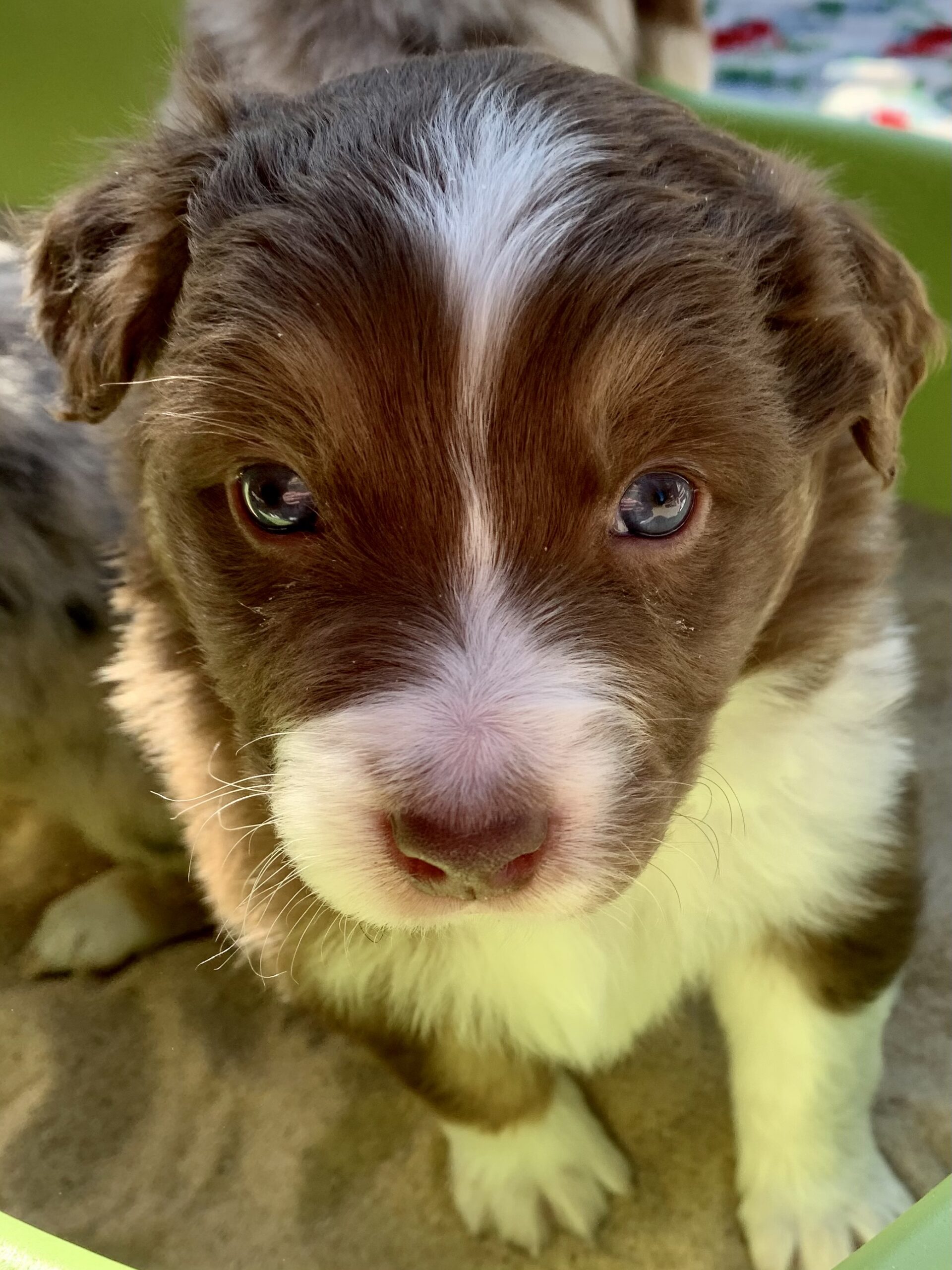
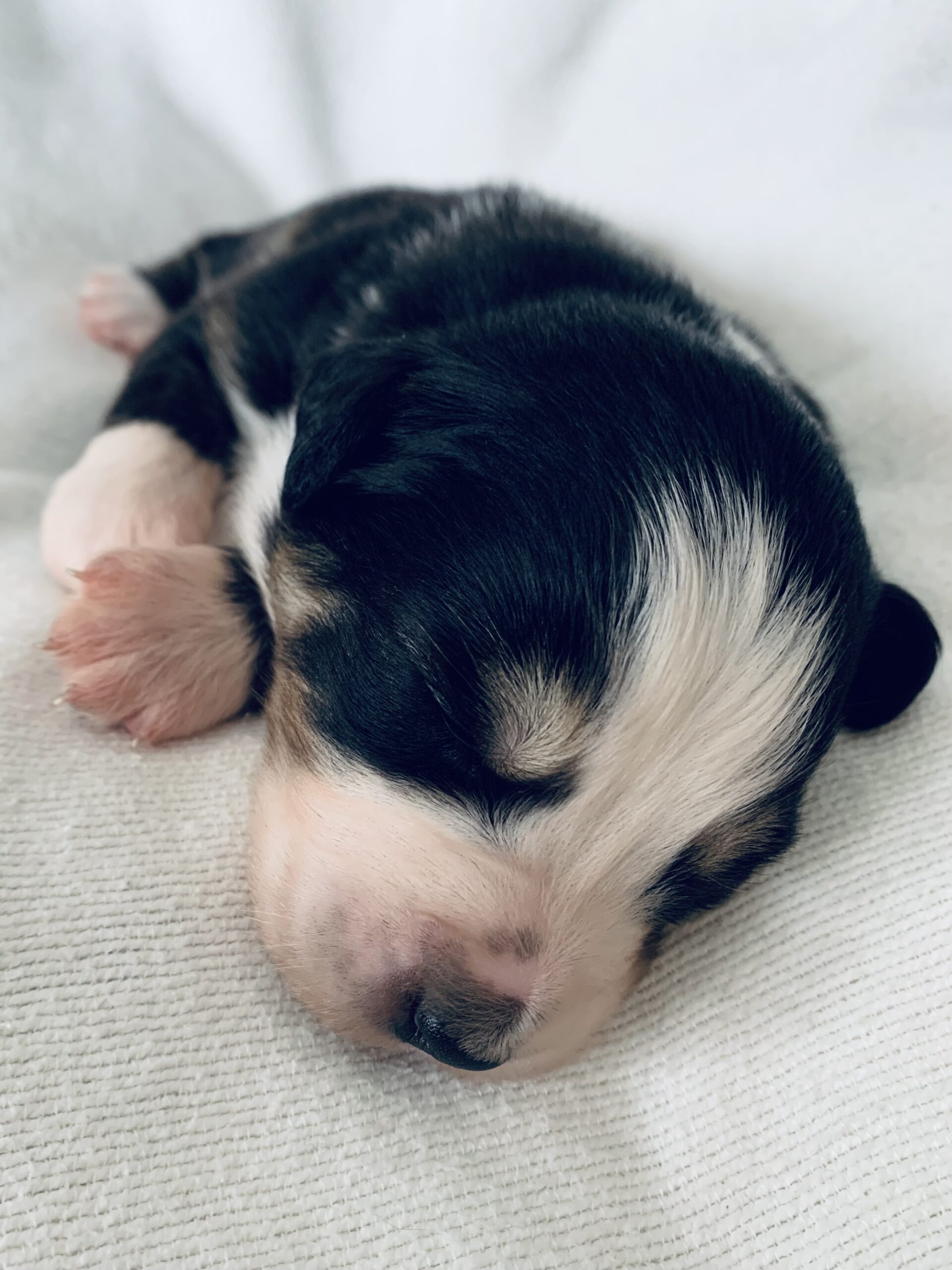
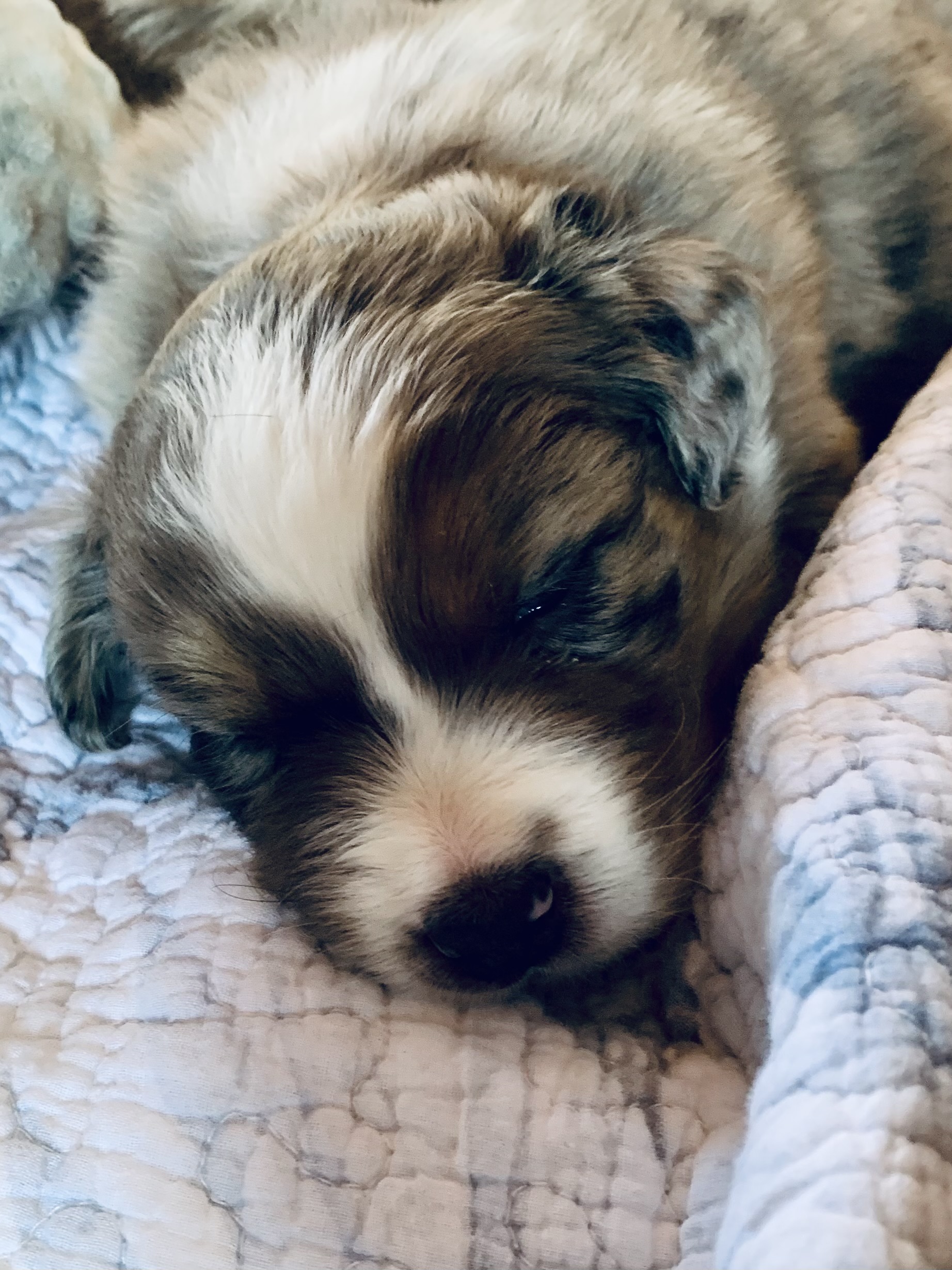

4 to 6 Weeks Old
The excitement begins with learning to play with toys, chasing each other around, and receiving lots of hands-on socialization.
The puppies are beginning to adventure into the world of soft food and water. Watching them navigate the litter-sized food bowl is always a cute scene. During these weeks, the puppies start potty training. This ultimately helps our clients get a head start on house training by the time they head home.
Most people think of socialization as exposing their puppies to as many new experiences as possible while the puppy is young. While this is part of the process, it’s not enough. Our goal is to expose them to dark spaces with a tunnel, uneven surfaces with a wobble board, and elevated surfaces with a raised dog bed.
At this stage we are continuing to work with the puppies to expose them to just the right experiences at the right time.
Puppies get to practice their training in real life settings, they get to Mand (ask politely) for petting (instead of jumping).
New Training Begins:
To come when called.
To give up a toy.
Clipping nails, grooming, etc.
Crate Training - Puppies explore crate with door open.
Crate Training - Nap in crate with door closed.
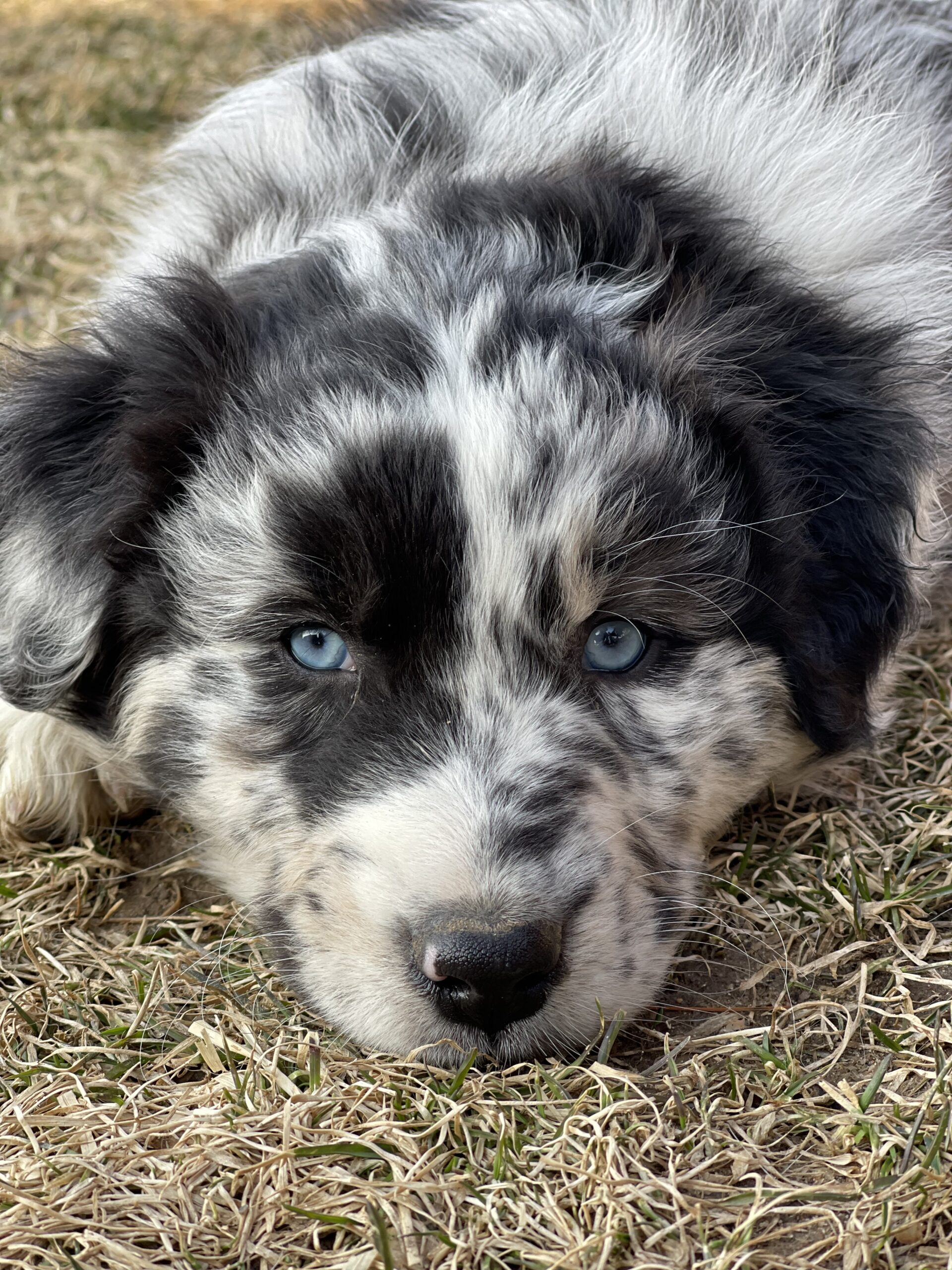
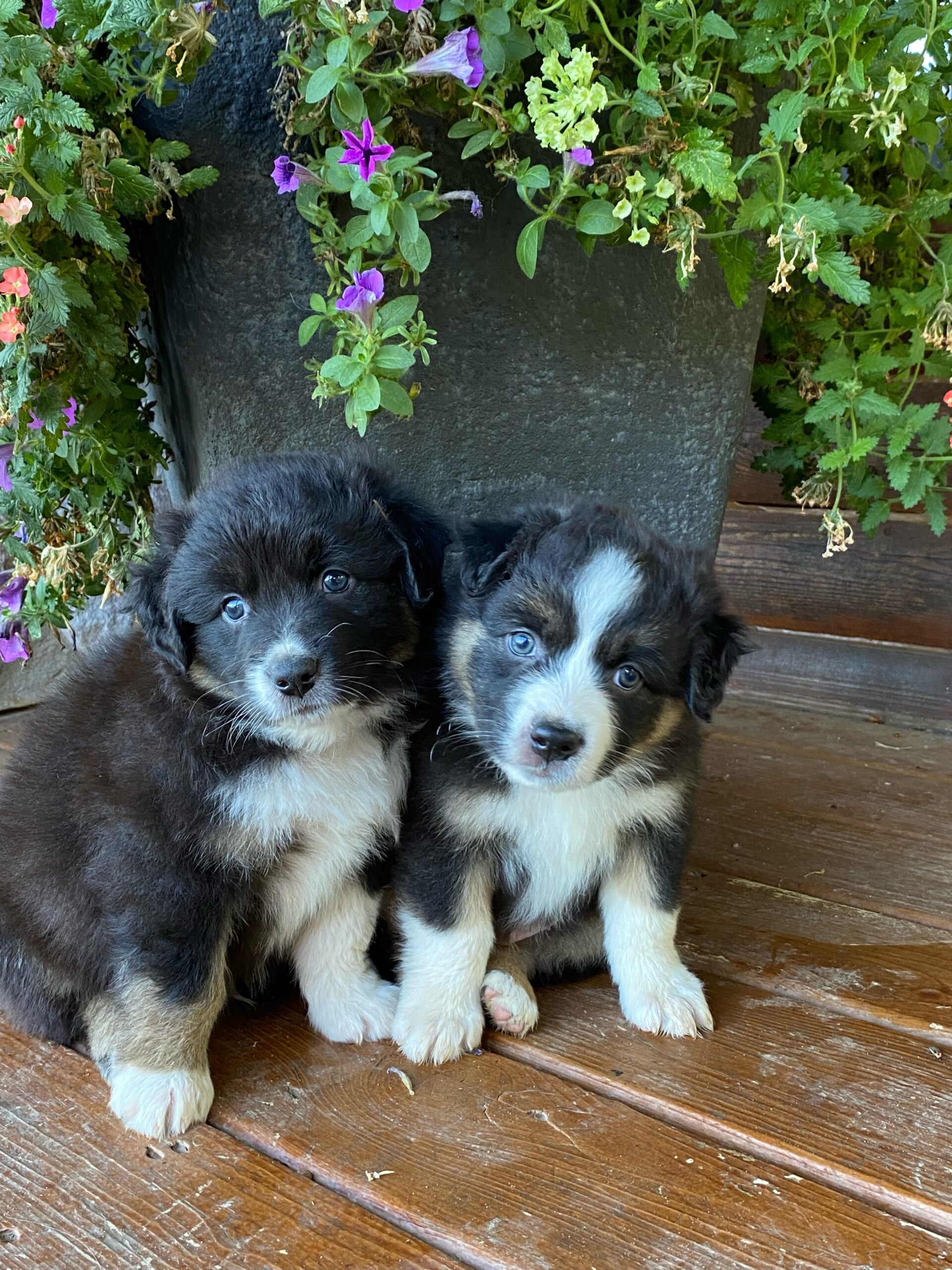
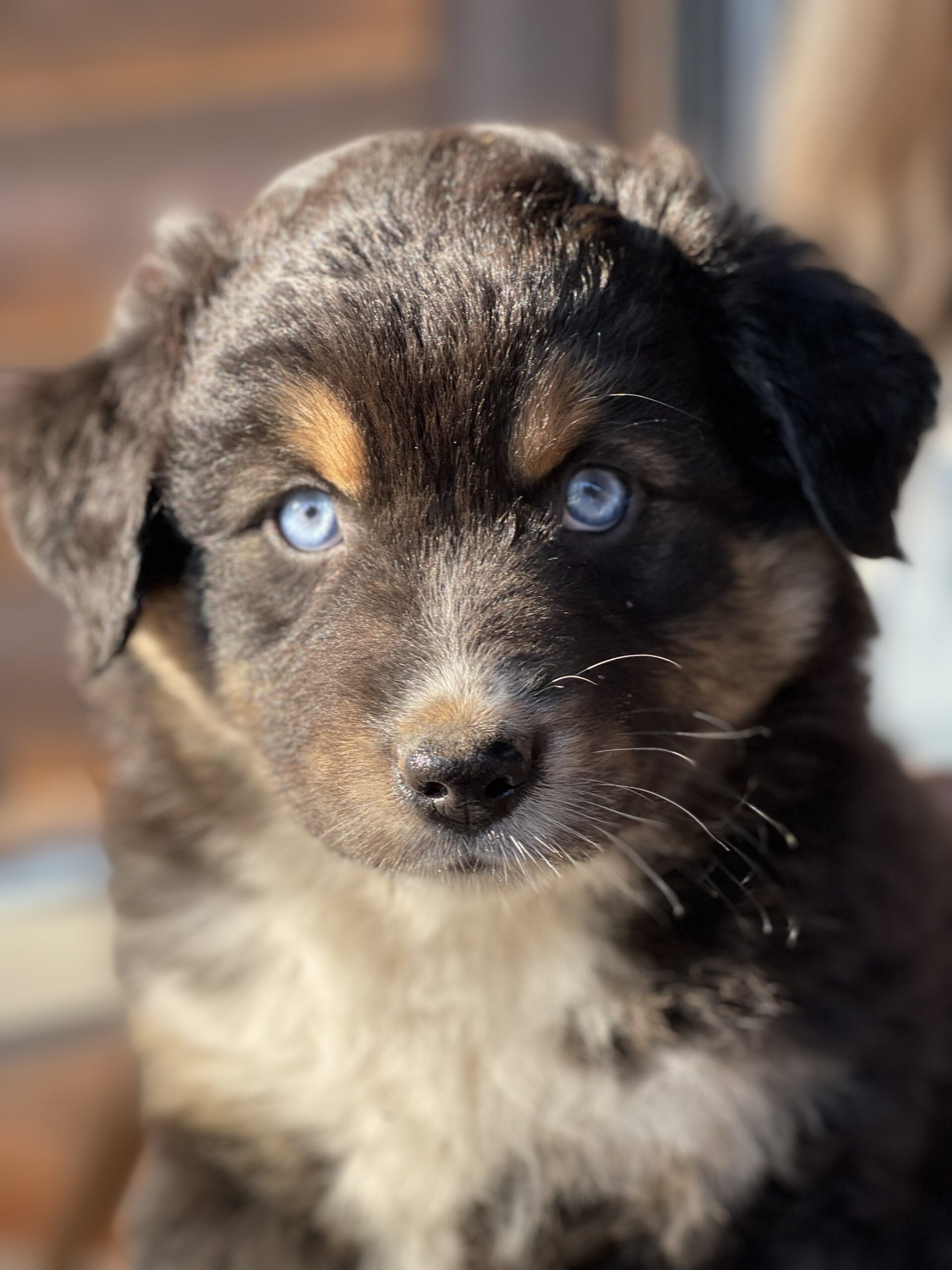
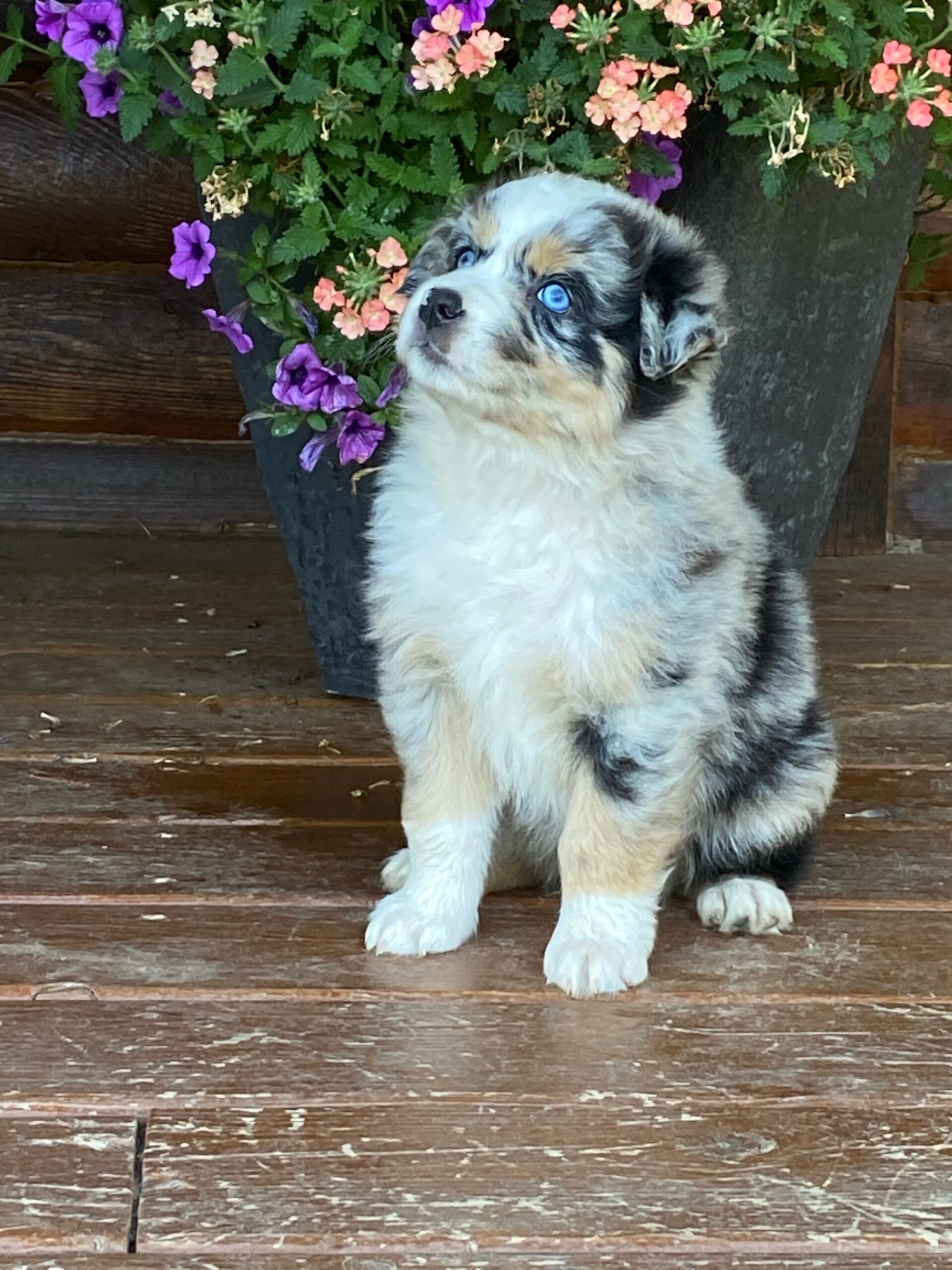
6 to 8 Weeks Old
Fear periods are a normal part of puppy development, knowing how to deal with them, what to do, and most importantly what not to do, have life long implications for the adult dog and it’s family.
With the Puppy Culture training, we are able to both recognize when a puppy is experiencing a fear period, to help them through the period, without allowing any trauma that might affect their temperament forever.
Healthy – Our dogs are fully genetically tested for any breed specific diseases or disorders that Aussies are prone to developing.
Great Temperament – Our dogs are part of our family, and therefore are brought up to make good decisions on a daily basis. This allows your puppy to acclimate to your lifestyle in a natural, trusting way.
Intelligent – Australian Shepherds are intelligent and loyal dogs. By nurturing their natural curious minds, we help create lifetime companions that truly love their owners more than themselves.
